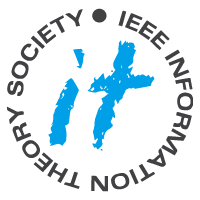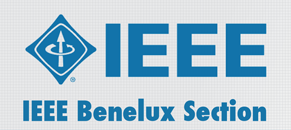Currently, a vast majority of global data transmission is through fiber optic cables. From transoceanic communication links to data center inter-connections, optical communication is a key enabler of the digital revolution. Consequently, there has been an extensive amount of research on understanding the limits of information transmission through optical fibers in the past couple of decades. Motivated by the steady increase in the amount of data traffic and the need for higher speed connections, researchers and engineers have been exploring different types of waveforms, advanced DSP techniques, and information theoretic tools to improve the reliability of transmission over optical links.
At higher transmission powers, the major bottleneck of optical communications is highly nonlinear interactions in the fiber, and high complexity of associated compensation algorithms such as DBP. Unlike analytical DSP techniques, neural networks however, use computational methods to “learn” information directly from data without relying on a predetermined equation as a model. Thanks to their accuracy and ease of application, neural networks are emerging as a promising solution in almost all fields such as process control, pattern recognition, medical diagnosis, data mining, etc. Also in the field of communications, neural networks became increasingly popular owing to their great potential in performance monitoring, fiber nonlinearity mitigation and modulation format recognition.
The 8th Van der Meulen Seminar focuses on new directions in studying neural networks for communication systems. In particular, invited speakers seek to answer the questions “Which communication tasks should be first offloaded to neural networks?” and “Can we also learn from neural networks on how to build signal processing algorithms that push the limits of communication through fibers ?”
(Download seminar schedule here)
Organizers: Alex Alvarado (Eindhoven University of Technology) and Frans Willems (Eindhoven University of Technology).
INVITED SPEAKERS
Prof. Laurent Schmalen (Karlsruhe Institute of Technology)
Dr. Christian Häger (Chalmers University of Technology)
Dr. Jakob Hoydis (Nokia Bell Labs)
REGISTRATION
Attendance is free of charge, but the space is limited. Morning session (09.30 - 12.30) is limited to 40 participants, and afternoon session (14.00 - 16.45) is limited to 60 participants.
If you are interested in joining, please follow this link here to register online or send an email to (Y.C.G.Gultekin@tue.nl) or (K.WU@tue.nl).
Registration Deadline: December 6, 2019.
PROGRAM
Friday, December 13, 2019
Location: Eindhoven University of technology (TU/e), Atlas 6.225
09.30 - 10.00
- Registration & Welcome Coffee
10.00 - 11.00
- Workshop Session I, Hands-on workshop on Machine Learning in Python (TensorFlow 2.0), Kadir Gümüş and Rick M. Bütler
11.00 - 11.15
- Break (coffee/tea)
11.15 - 12.30
- Workshop Session II, Hands-on workshop on Machine Learning in Python (TensorFlow 2.0), Kadir Gümüş and Rick M. Bütler
12.30 - 14.00
- Lunch, De Zwarte Doos (not covered by organizers)
14.00 - 14.45
- Prof. Laurent Schmalen, “End-to-end Deep Learning of Optical Fiber Communications” (Click to open the slides)
14.45 - 15.30
- Dr. Christian Häger, “Model-Based Machine Learning for Fiber-Optic Communication Systems” (Click to open the slides)
15.30 - 14.00
- Break (coffee/tea)
16.00 - 16.45
- Dr. Jakob Hoydis, “Recent Progress in End-to-End Learning for the Physical Layer” (Click to open the slides)
17.00 - 18.30
- Closing Drinks, University Club (covered by organizers)
HIGHLIGHTS
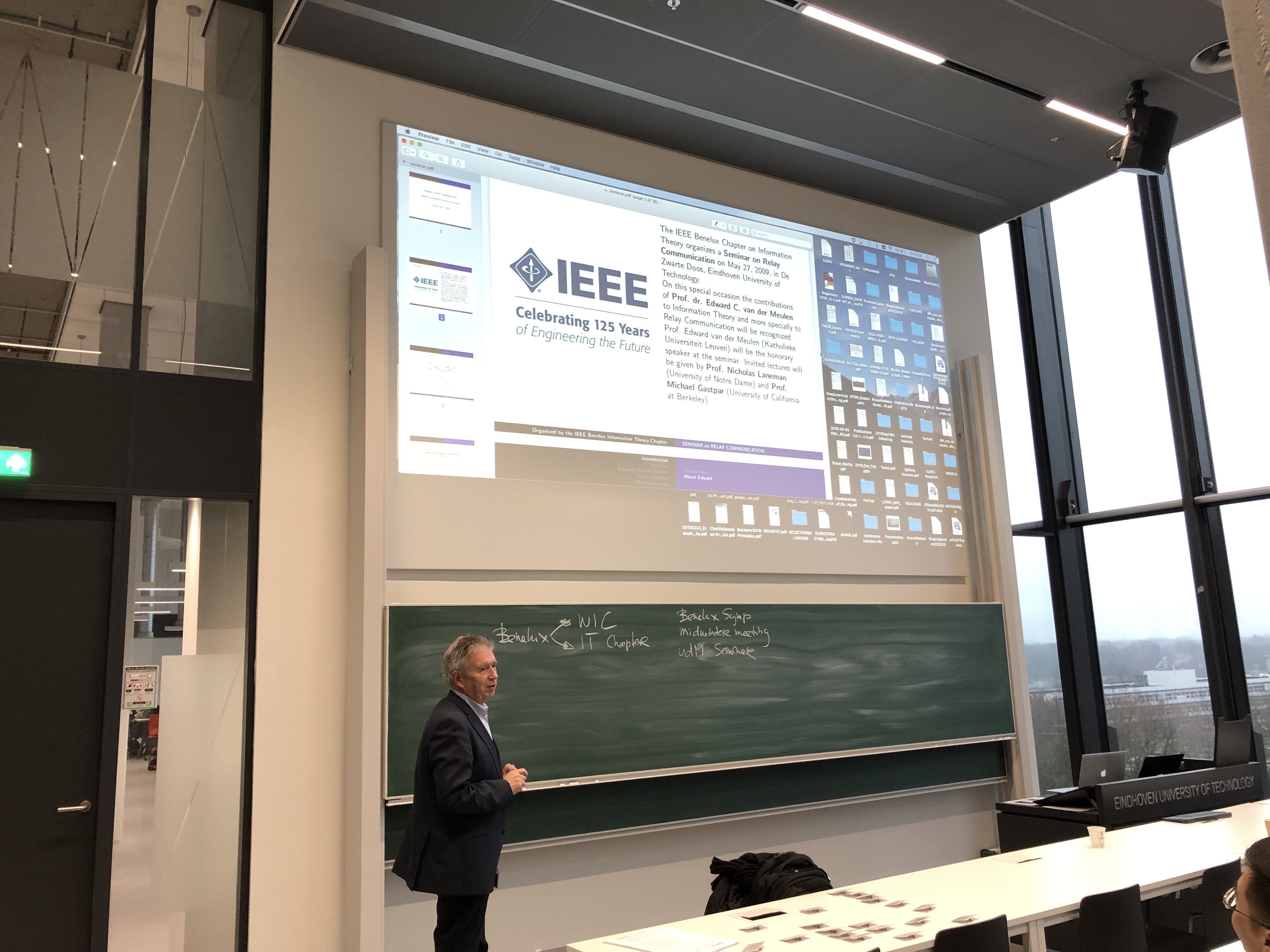
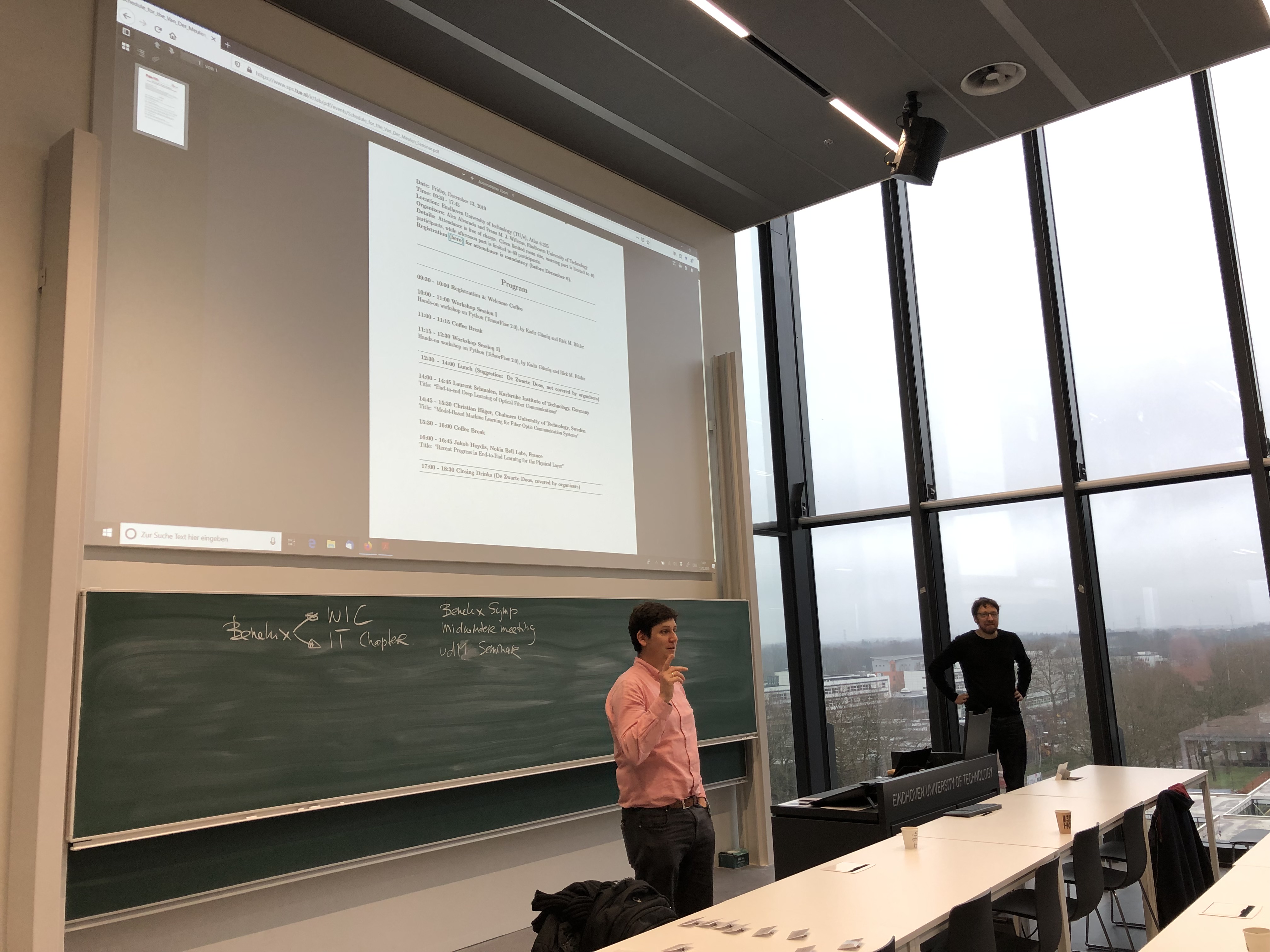
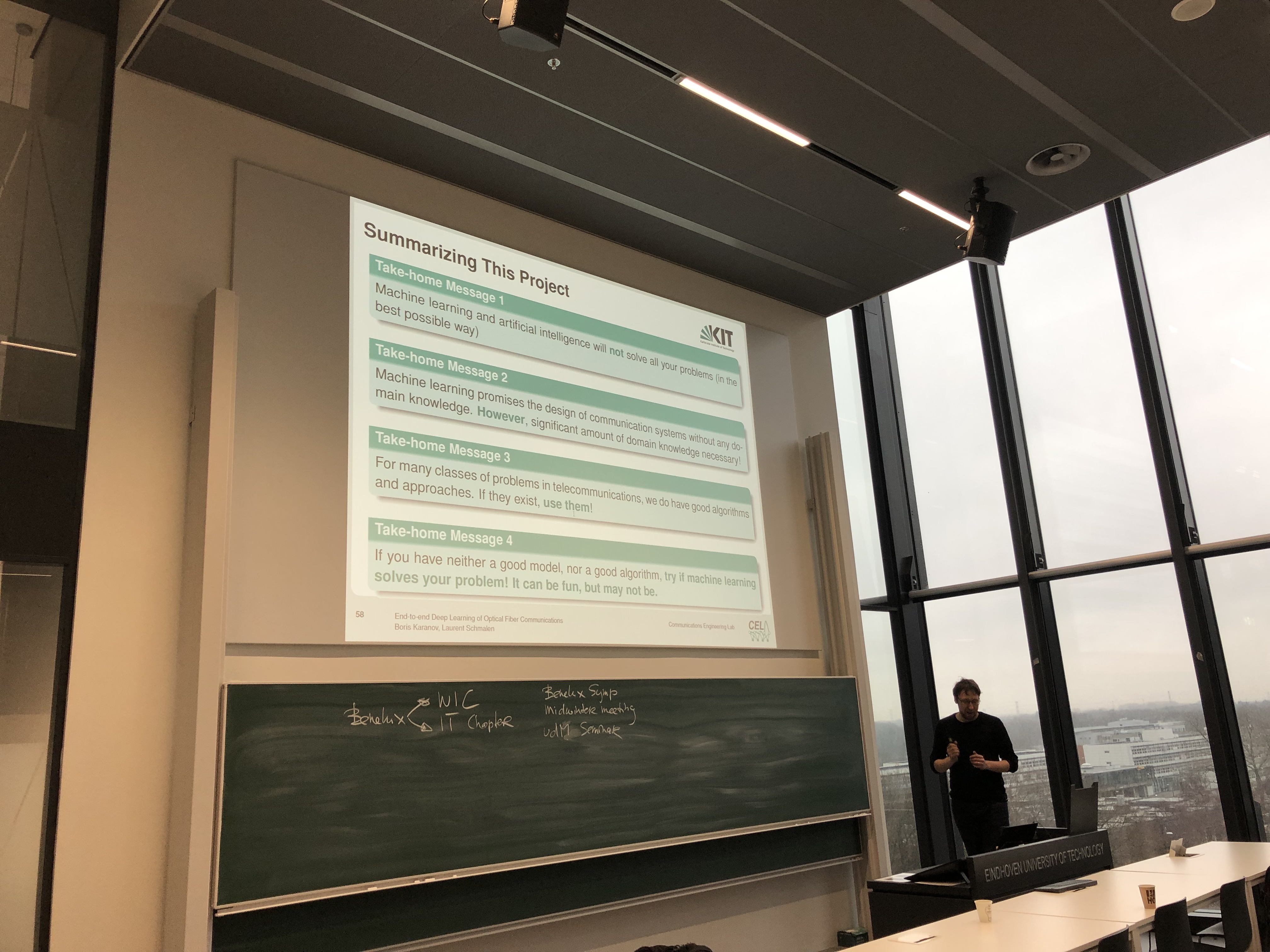
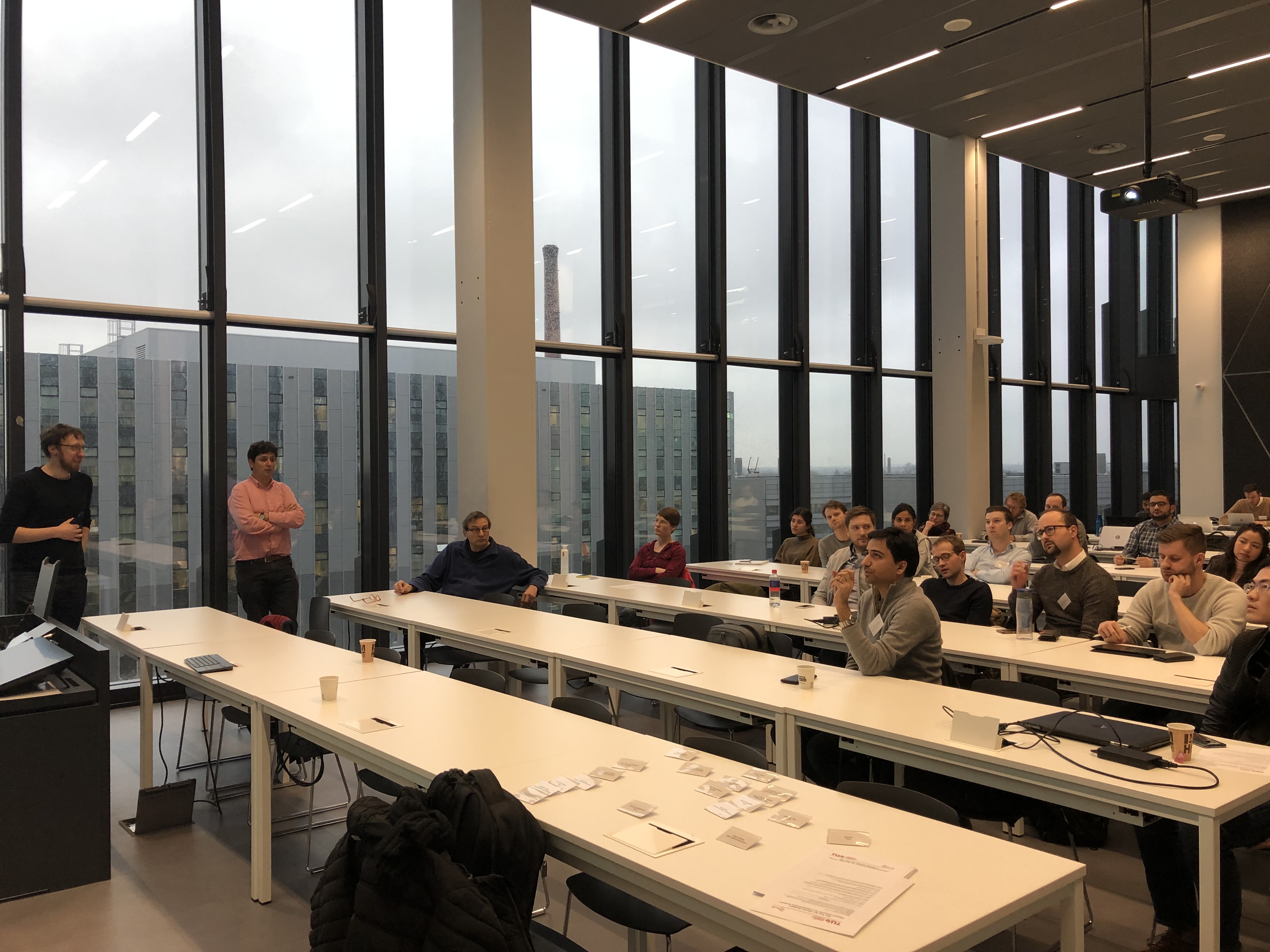
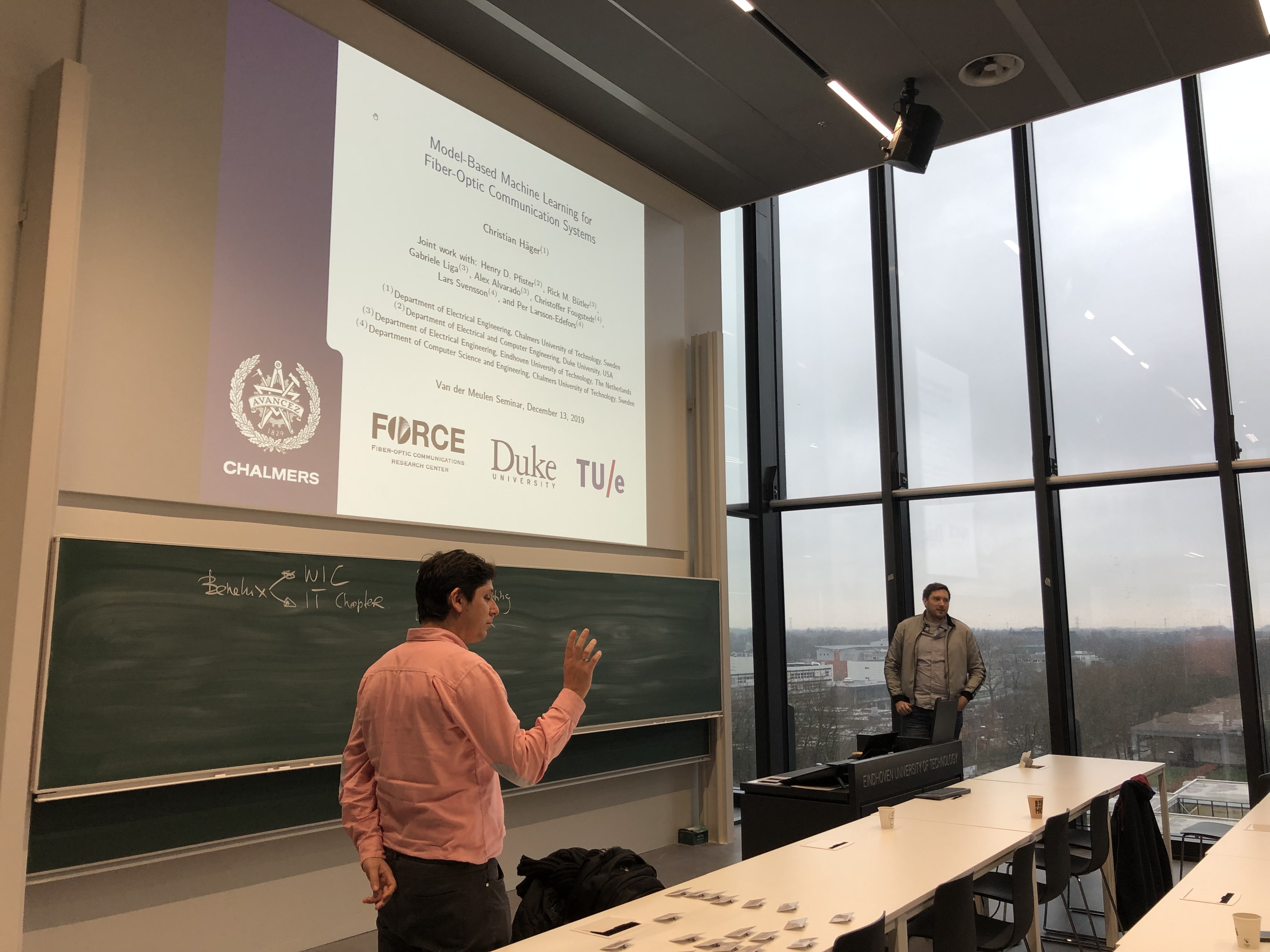
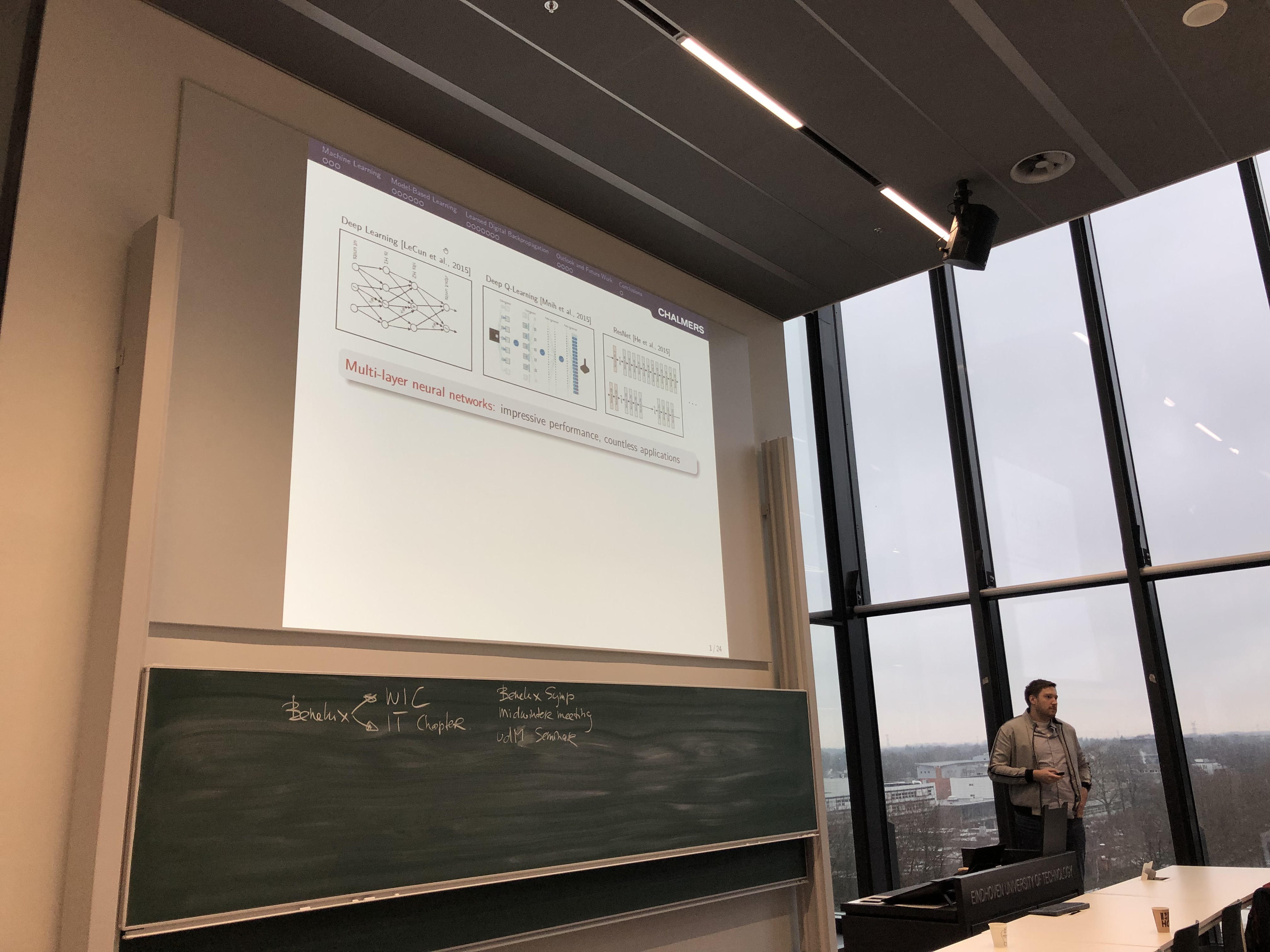
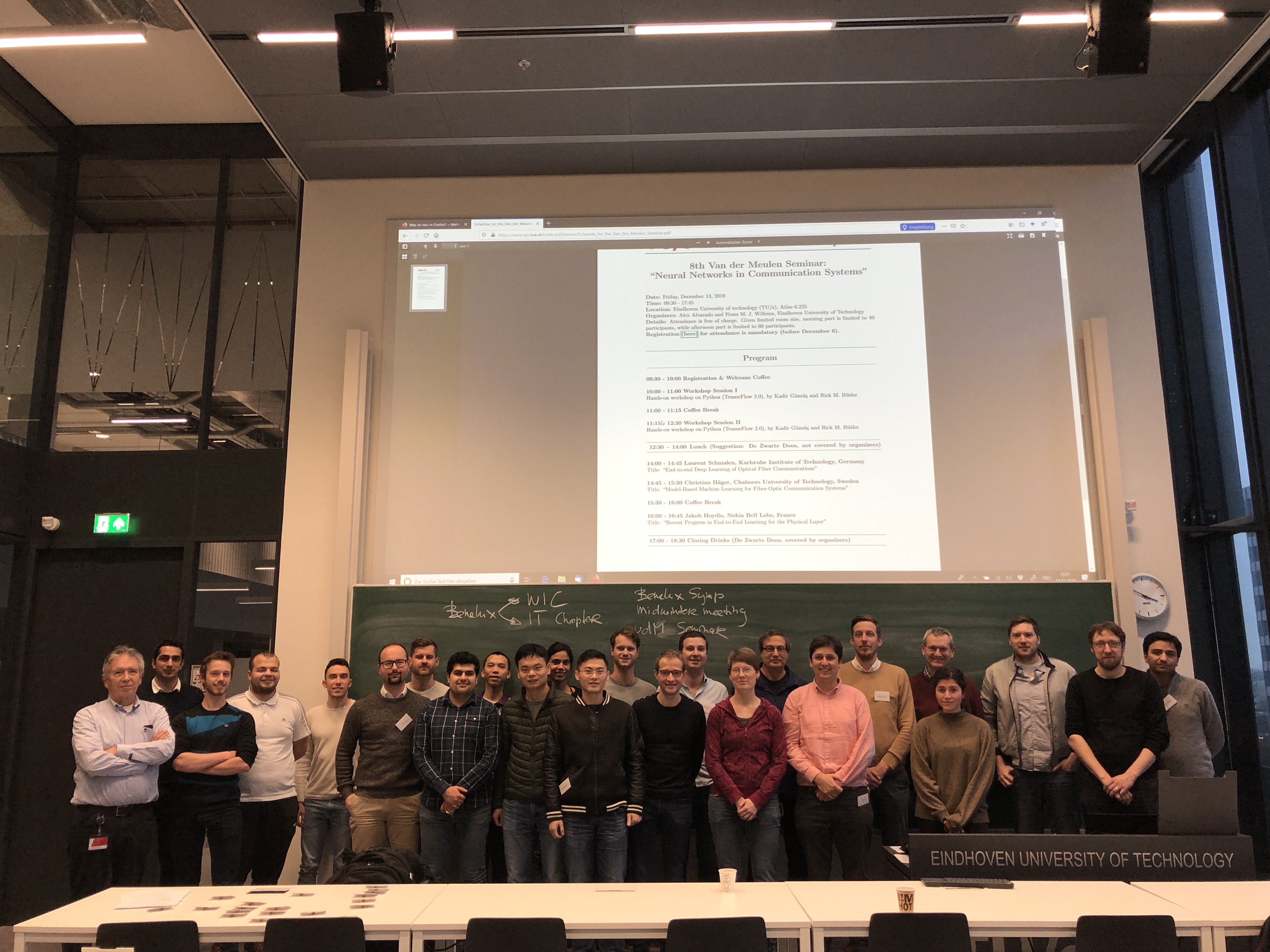
Thanks for the speakers, organizers and participants! Thanks for all your efforts in making our seminar such a success. Hope to see you in the next Van Der Meulen Seminar!
SUPPORTED BY
